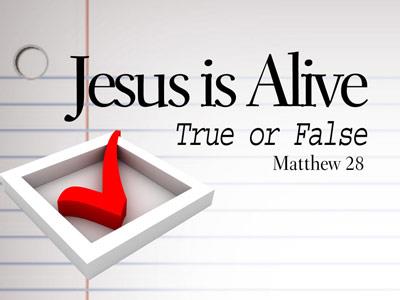-
Jesus Christ Creator
Contributed by Dennis Nolan on Nov 28, 2017 (message contributor)
Summary: Jesus Christ - the agent of creation
This is the second week on which we are going thinking about the opening verses of John’s gospel. Today I invite you to think about John 1:3 where we are told that the unique logos were also the agent of creation. It says “Through him all things were made; without him nothing was made that has been made”. Some people think that John 1-14 is a hymn of praise to Jesus. If that is the case then maybe some of the assertions of these verses can be put down to poetic license. Others look to verses 1-14 as a source, not of poetic license, but of profound philosophical and doctrinal truth
The Bible teaches in more than one place that Jesus the Christ had a role to play as the agent of Creation. For example,
All things were made by him [the Word, in Greek ëüãïò (logos), = Jesus Christ]’ (John 1:3), and ‘For by him [Jesus Christ] were all things created’ (Colossians 1:16).
If the logos is the agent of creation and was manifested in the person of Jesus then we should expect to see some parallels between what happened at creation and the works of Jesus during his time on earth. (Last week Alan Whitehead pointed out the parallels between Gen 1 and John 1
There are four distinctives of creation mentioned in Genesis.
1. Creation involved the act of God in bringing into being immediately matter which did not previously exist, without the use of pre-existing materials; for example, the creation of the heavens and the earth, recorded in Genesis 1:1. Creation also involved the shaping, combining, or transforming of existing materials, like the creation of Adam as a fully formed adult male from the dust of the ground (Genesis 2:7), and Eve from Adam’s rib (Genesis 2:21–22).
2. Creation involves life coming to otherwise lifeless matter.
3. Creation, was by the Word of the Lord, that is, God said (= God willed it to happen1) . . . and it happened.
4. The purpose or motive of God in creation was threefold
(i) according to Psalm 19:1to display His glory,2 The heavens declare the glory of God; the skies proclaim the work of his hands.
(ii) to make known His power, His wisdom, His will, and His holy name,3
Exodus 9:16But I have raised you up [a] for this very purpose, that I might show you my power and that my name might be proclaimed in all the earth
(iii) and that He might receive glory from His created beings.4 1 Chron 16:29 ascribe to the LORD the glory due his name. Bring an offering and come before him;
worship the LORD in the splendour of his [d] holiness.
There aren’t exact parallels between the miracles of Jesus and Creation in Genesis because, because his primary purpose in coming was not to create, but ‘to seek and to save that which was lost’,5 and ‘to give his life a ransom for many.’6
Let’s look then at these four aspects of creation, comparing them with the work of Jesus.
1. Creation out of nothing or from existing materials
Several of Jesus’ miracles involved the creation of new material. Whether this was out of nothing or from existing materials is not spelt out by the Gospel writers, as they major on the fact of the miracles and the effects they produced (John emphasizes the teaching that Jesus drew from them), rather than on any analyses of the modus operandi.
(i) Jesus’ first miracle in John’s gospel 2 involved the creation of wine. At a wedding breakfast, Jesus instructed the waiters to fill six stone water-pots with water, and then to take them to the M.C. of the wedding banquet. The sign of the water changing to wine had more purpose than just helping the party to go with a swing. When they arrived, the water had been turned into wine. For that to happen there must have been, 7 the instantaneous creation of the grape sugar, carbon dioxide, colouring matter, of the wine. The purpose of this was to show God’s creative purposes at work through Jesus (4:46 indicates this was something talked about later).
(ii) Then on two occasions Jesus fed a multitude: on the first occasion more than 5,000 people from five loaves and two fish,8 and on the second occasion more than 4,000 people from seven loaves and a few little fish.9
On each occasion He started with bread and fish. Jesus either caused these original items to multiply, or He may have dispensed all the original food and then created additional loaves and fishes until everyone was fed.
Either way, Jesus created sufficient extra bread and fish, not only to feed many thousands of people, but also to provide 12 basketfuls of leftovers on the first occasion and seven basketfuls of leftovers on the second. This involved creation of the appropriate carbohydrate, protein and other molecules, and their immediate arrangement into the complex forms and structures needed to make baked bread and fish which was both dead and cooked.

 Sermon Central
Sermon Central



